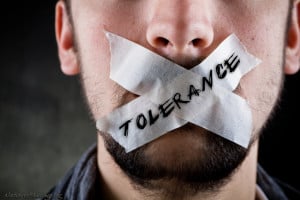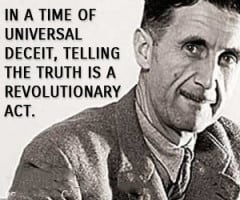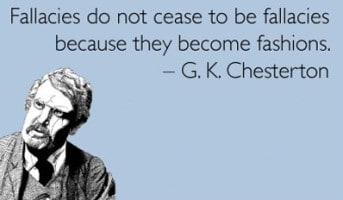
To purchase the entire DVD set of the Summit Lecture Series, visit summit.org.
Whenever you are discussing a controversial topic with someone, ask them, “Do you consider yourself a tolerant person?” When they reply that they are, you then say, “Well, good. So, when I say something that you don’t agree with, then you will still treat me and my ideas with respect, even though you don’t agree with them, right? That’s what a tolerant person would do. Correct?”
By doing this, before things even have a chance at getting heated, you have already “defanged” any response that they may come at you with, particularly if their response is an emotional or ad hominem attack.

All this to say, know this: Christians aren’t commanded to be tolerant.
Christians are, in fact, commanded to be loving.
You see, tolerance means to hold your nose and put up with them, but love says to reach out and help them. Tolerance does not go far enough for a Christ-follower. Out of love, Christians sometimes need to tell people what they don’t want to hear. This begins with children being told by their Christian parents things they don’t always want to hear (No, you can’t have that… no, you can’t go there… no, you can’t set your brother on fire…)
Good, loving parents don’t always tolerate the things that their children want to do because it’s sometimes in their child’s best interest for them to say, “No”.
So, what does it mean to love?
One of the things that love certainly means is that love stands for the truth, even if people aren’t going to like us for standing firmly for the truth.
It’s often said about someone, “That person is such a saint… they’ve never said a bad word about anyone.” The thing is, if that’s the definition of a saint, then Jesus Christ was no saint!
Jesus constantly went after the religious leaders of His day and their hypocritical life choices and religiosity.
So, if we want to live like Jesus, we need to not purposefully be offensive, but sometimes it’s unavoidable.
And, unfortunately, in today’s culture, the truth is revolutionary!
George Orwell put it this way: “In a time of universal deceit, telling the truth is a revolutionary act.”
All this to say, the same-sex marriage debate is not about what most people think it’s about.
First off, there seem to be three main reasons why most heterosexuals support same-sex marriage. The first one is intellectual. In other words, “We don’t understand why the state supports gay marriage in the first place”.
Secondly, there is a moral component that says, “We’ve been duped into believing this is a civil rights issue”. Therefore, it is somehow immoral to oppose same-sex marriage. It’s on the same level as disagreeing with America’s Civil Rights Amendment or inter-racial marriage.
Most prevalent is the third reason, which is emotional. In other words, they maintain, “We are loving people who want to be our homosexual friends to be happy. We are also impacted by insults and peer pressure.” This is revealed in national polls constantly. Yet, despite the fact that every poll says that an overwhelming number of people are in favor of same-sex marriage, a disproportionate number of times that the issue has gone to a popular vote, it hasn’t passed. One of the reasons for this is because people don’t want to tell the pollster that they are against same-sex marriage, for fear that the pollster might think that they are a bigot or homophobe.
You see, a lot of the reasons that people give in support of same-sex marriage are simply not true. They are fallacious in their very nature: LGBT people are born that way; To deny the right for same-sex marriage is discrimination; It’s a matter of equal civil rights; To deny same-sex marriage is bigotry; LGBT is the same as race when it comes to individual’s rights. These reasons are not really what they seem they are.
As G.K. Chesterton said, “Fallacies do not cease being fallacies when they become fashions.”
To be clear, the same-sex debate is not about equality or equal rights, discrimination against a class of people, denying homosexuals the right to commit to one another (in fact, if two people of any persuasion want to commit to one another “til death do us part”, they have been allowed to do so for ages), love or private relationships, tolerance or intolerance, bigotry or homophobia, sexual orientation or being born a certain way, race or the civil rights struggle, inter-racial marriages, heterosexuals and divorce (even though many heterosexuals have ruined marriage because of divorce, but nevertheless, it’s not the core issue), the separation of church and state, nor is it even about religion.
For most people caught up in the debate, it’s not even really about marriage. Research shows that over 90% of homosexuals who cohabitate still do not get married, even when given the opportunity.
So, what is it about?